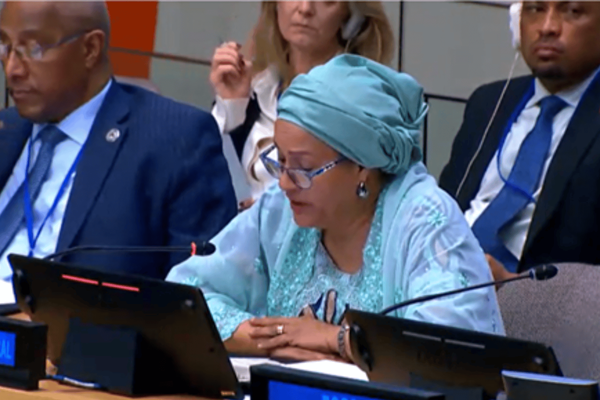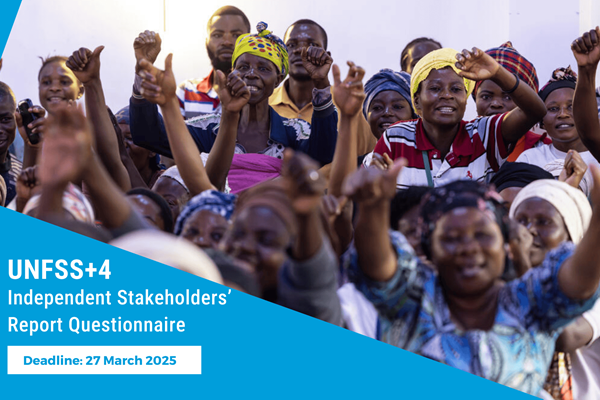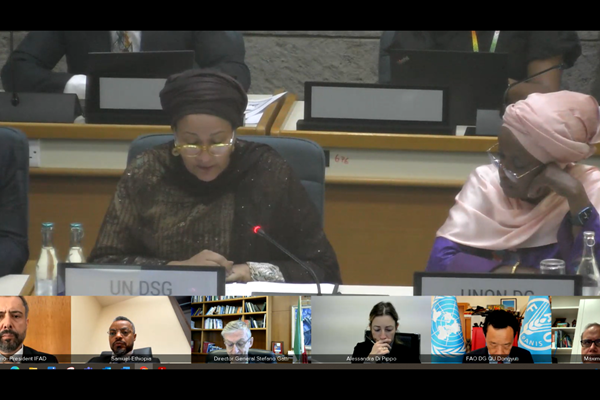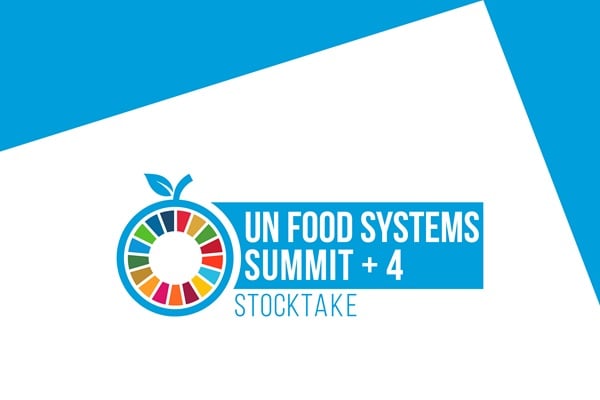OVERVIEW AND UPDATES
About UNFSS+4
The 2nd United Nations Food Systems Summit Stocktake (UNFSS+4) will take place July 27–29, 2025, in Addis Ababa, Ethiopia, co-hosted by Ethiopia and Italy. Building on the momentum of the 2021 UN Food Systems Summit (UNFSS) and the first Stocktake in 2023 (UNFSS+2), this event will reflect on global progress in food systems transformation, strengthen accountability, and unlock investments to accelerate action towards the 2030 Sustainable Development Goals (SDGs).
With just five years remaining until 2030, UNFSS+4 will serve as a critical moment to reflect on national efforts, explore solutions, and mobilize stakeholders toward sustainable, resilient, and inclusive food systems.


KEY DATES AND STRUCTURE
- July 27 – Action day & field visits
- July 28-29 – UNFSS+4 official sessions
The high-level opening will include participation from the UN Secretary-General, heads of state and government, and other global leaders.
A pre-summit session will also take place, where civil society – including youth, Indigenous groups, smallholder farmers, and women’s organizations – will lead discussions on the future of food systems transformation.
Why UNFSS+4 Matters
The 2021 UN Food Systems Summit (UNFSS) positioned food systems as a key lever for the sustainable development agenda. However, geopolitical challenges, ongoing conflicts, and the climate crisis have hindered progress. UNFSS+4 aims to address these challenges by reinforcing commitments made at previous summits, aligning global priorities, and accelerating practical solutions.

Building on UNFSS+2: The Call to Action
At UNFSS+2 in 2023, the UN Secretary-General issued a Call to Action for accelerated food systems transformation, urging governments and stakeholders to:
- Integrate food systems strategies into all national policies for sustainable development.
- Strengthen governance frameworks to engage all sectors and stakeholders.
- Invest in research, data, innovation and technology capacities, including stronger connections to science.
- Promote inclusive participation of women, youth, and Indigenous communities.
- Expand private sector engagement through sustainable business practices.
- Improve access to financing and concessional funding for food systems transformation.
Objectives of UNFSS+4
Reflecting on progress
Reflecting on achievements and identifying lessons learned, while analyzing the factors that have enabled success in various contexts. This will provide a foundation for understanding gaps and scaling transformative solutions.
Strengthening accountability
Engaging state and non-state actors in mutual accountability mechanisms to assess commitments, track progress, and identify missing elements, fostering an inclusive environment where all stakeholders can contribute meaningfully to food systems transformation.
Unlocking investments
Exploring opportunities for financing innovations and scaling solutions, with a focus on creating enabling environments, leveraging public-private partnerships, and mobilizing climate and development finance to support transformative actions at scale.
Stay Updated
Regular updates, event briefings, and engagement opportunities will be shared leading up to UNFSS+4. Subscribe to our mailing list to informed.





